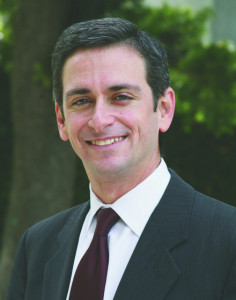If you’re like me, the intractable status quo between Israel and the Palestinians is really getting you down.
Ever since Yitzhak Rabin’s handshake with Yasser Arafat on the White House lawn nearly 24 years ago, my heart has been given over to the Oslo accords. An Israel and a Palestine, existing side by side in mutual respect and peace, seemed finally attainable. I lobbied. I donated. I taught. I led missions. I gave everything I had to the vision of a two-state solution—and I did it in partnership with so many hopeful, like-minded others in North America, in Israel and in the occupied territories.
It hasn’t been nearly enough. While the majorities of the Israeli and Palestinian peoples have long favored a two-state solution, even larger majorities among both peoples believe that it will never happen—and politicians on both sides have feasted upon that cynicism to entrench the status quo. 24 years have passed, and our dreams of two peaceful states seem farther away than ever.
What’s a peace advocate to do?
This week, as we open our study of the Book of Deuteronomy, we find the suggestion of an answer. Deuteronomy is our Torah’s attempt at placing Jewish history into perspective. After all, by the time the last of the Five Books of Moses begins, the story of the ancient Israelites has already been told—from Abraham and Sarah and their descendants to the brink of freedom in our own land. This makes it the perfect moment for the Torah to take a metaphorical step back, to evaluate and articulate the core values that our people will carry with them into the land of Israel.
Deuteronomy thus opens with a preamble of sorts. And then, when it comes time for substance, the first words out of Moses’ mouth are: “Shamo’a bein acheichem ushefat’tem tzedek bein ish uvein achiv uvein geiro”—“Hear out your fellow human beings, and judge with righteousness between any person and a fellow Israelite, or any Israelite and a stranger.” (Deut. 1: 16, NJPS translation)
The first Hebrew word—shamo’a—sounds at least a little familiar to most Jews. Shamo’a comes from the same Hebrew root as Sh’ma. But shamo’a means more than just “hear.” Literally, it means to hear emphatically, to hear with special sensitivity—or, as most translators put it, to “hear out.”
There is an important difference between hearing and hearing out. The first is an involuntary act, the second a voluntary act. That is to say, so long as my ears work, I have no choice but to hear. But hearing out is different. We all possess a “mute” button of sorts, one that turns off those things and people that we refuse to hear out.
The cynicism paralyzing our hopes for a two-state solution is ultimately rooted in the natural human resistance to hearing out. Most of us made up our minds long ago about those we consider to be the core hindrance to peace. Some believe the Palestinians are the main impediment. Some believe it’s the Israelis. Some see specific elements in the North American Jewish community as the key obstacle. For others, it’s anti-Semitic forces in the world. There are, of course, truths to be found in all of these arguments. The problem is that our hunger to assign responsibility actually makes us one of the impediments to peace. We stop hearing out those whom we’ve already tagged for blame, and we render ourselves mute to the very people we would need to win over in order to advance the goal of peace.
After 24 years of failure, we must accept that there are no shortcuts to two states. The only way to produce leaders who will take risks to end the conflict is to produce peoples who will demand that kind of leadership. That can only happen at the grassroots level, where some very brave Israelis and Palestinians are already shedding their cynicism and opening themselves to the call of this week’s Torah portion—shamo’a—to hear each other out… for real. Organizations such as Roots-Shorashim-Judur (www.friendsofroots.net), which enable Palestinians and Israelis (including settlers) to tell their stories and discover the humanity of one another, are rebuilding the bridge to two states, one hearing-out at a time. A movement is emerging—one built not upon political advocacy but upon human encounter, which possesses the power to destroy distrust and to honor all of the competing truths.
We can ill afford to replicate the same mistakes that turned Oslo into a mirage. This week’s Torah portion is here to offer us a better way. Let us move beyond just hearing the Palestinians and our fellow Jews in Israel and North America—just hearing and tuning out the same old acrimonious sounds. Let us instead hear out those who might just be bold enough to join with us in healing the fractures, both within and beyond our own people, for the road to peace will certainly require us all to be willing travelers.
Rabbi Ken Chasen is Senior Rabbi of Leo Baeck Temple in Los Angeles and the Secretary of the board of T’ruah.

